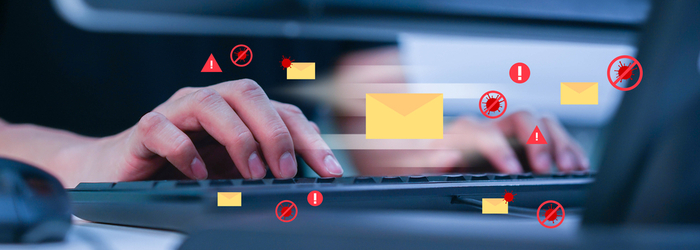Phishing scams are a very common type of cyberattack, with 3 in 4 businesses in the US having experienced at least one of them. Here are some common signs to look out for to help you identify a phishing attack in 2022:
1. The URL doesn’t match – When you hover over the URL in an email, does it show what you would expect it to show? If it displays differently than what you expect, it’s not a legitimate email.
2. Unexpected attachments – If an email has an attachment, proceed with caution. This is especially true if it’s from an unknown sender or is unexpected.
3. Spelling and grammatical errors – While everyone can make mistakes, phishing emails are often rife with spelling and grammar errors.
4. Something looks off – Is the logo different, the colors off, or it just looks “wrong”? Compare the logo and formatting to known emails from the business you’ve received in the past.
5. Tax information requests – Never send your tax information to an unknown sender, and check the email carefully if it’s requesting your information. In fact, don’t hit “reply” at all, but instead send it directly to your HR department to confirm if it’s a legitimate request.
6. Update your information – Many phishing emails appear to come from legitimate businesses, asking you to update your information. However, a real company is never going to ask for your password or login, financial data, or other personal information via email.
7. An email from the CEO – Unless you regularly receive emails and requests from the CEO, chances are that it’s not a legitimate email. Phishing scammers often research the upper-level management and impersonate them to fool employees.
8. You won a contest – If you get an email claiming you won a contest that you don’t even remember entering, it’s likely a scam.
9. A sense of urgency or desperation – Any email requiring immediate action has likely been designed into making you act without thinking. Slow down, and judge its legitimacy before doing anything.
10. COVID information – Ever since the beginning of the pandemic fraudsters have bombarding people with information about phony remedies, vaccines, or other unsolicited information. If you receive an email like this delete it – it’s probably a scam.
Phishing scams are incredibly common, but learning how to recognize them can protect you and your company from harm. At NATIONAL we offer solutions to protect businesses from scams just like these. Give us a call and let’s talk about how we can help keep your business safe in 2022!



